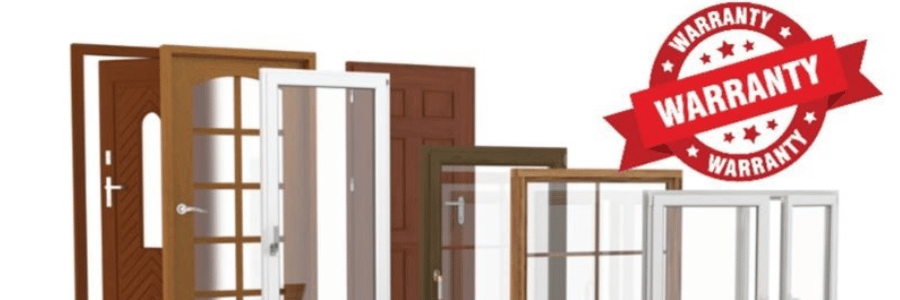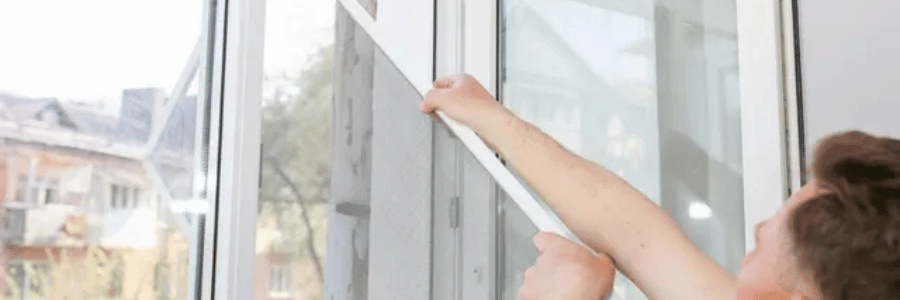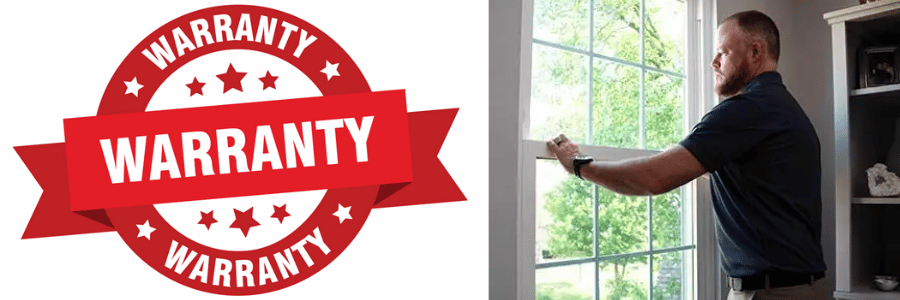When it comes to home improvement, purchasing new windows is a significant investment. Whether you’re replacing old, drafty windows or upgrading to energy-efficient models, making the right choice can have long-term benefits for your home. However, one often overlooked factor in the decision-making process is the window guarantee. Understanding the terms and coverage of your window warranty is essential to ensure you’re making a sound investment and protecting your home.
Before you sign on the dotted line, here’s what you need to know about window guarantees and how to make sure you’re getting the best protection.

1. What is a Window Guarantee?
A window guarantee (often referred to as a warranty) is a promise from the manufacturer or installer to repair or replace your windows if certain issues arise within a specified time frame. These guarantees typically cover defects in materials or workmanship, providing peace of mind that you’re covered should something go wrong.
However, not all window guarantees are created equal. The terms, coverage, and duration can vary significantly between manufacturers and installers. It’s essential to carefully review the fine print to understand what’s included and excluded.
2. Types of Window Warranties
Window warranties typically fall into a few categories, depending on what they cover and how long they last. Here are the most common types:
- Limited Lifetime Warranty: This is one of the most popular types of window guarantees. It usually covers defects in materials and workmanship for the lifetime of the window. However, “lifetime” often means the lifetime of the original homeowner, so it may not transfer to subsequent owners.
- Manufacturer’s Warranty: This type of warranty is provided by the window manufacturer, covering issues like glass defects, frame issues, and hardware malfunction. These warranties typically last 10–20 years but can vary based on the brand and window type.
- Installer’s Warranty: Some window installation companies offer their own guarantees, which cover the installation process and workmanship. These warranties may range from 1 to 10 years, depending on the company.
- Glass Warranty: Many window manufacturers offer separate glass warranties. These may cover issues like glass breakage, fogging, or seal failure, which are common problems that occur over time due to wear and tear.
- Transferable Warranty: Some window warranties are transferable, meaning that if you sell your home, the new owner can take advantage of the remaining warranty coverage. This can be an appealing selling point for potential buyers.

3. What Does a Window Guarantee Cover?
It’s important to understand exactly what your window guarantee covers. While the specifics will depend on the manufacturer, most warranties cover the following:
- Material Defects: This includes issues with the window frame, glass, or other components that are due to faulty materials.
- Workmanship: If there were any errors during installation that affect the performance or safety of your windows, an installer’s warranty would typically cover those repairs.
- Seal Failure: If the seal between the window panes breaks down, causing fogging, condensation, or air leaks, this is typically covered by the manufacturer’s warranty.
- Glass Breakage: Some warranties cover glass breakage, but it’s important to verify this before purchasing. Many glass warranties only cover defects, not damage caused by accidents.
- Performance Issues: This can include problems with window operation, such as sticking, difficulty opening or closing, or a malfunctioning locking mechanism.

4. What’s Not Covered by a Window Guarantee?
While warranties offer protection against defects and certain issues, there are often exclusions. Common exclusions include:
- Accidental Damage: Warranties typically do not cover damage caused by accidents, extreme weather, or other external forces (like fallen trees or vandalism).
- Improper Maintenance: If you neglect to care for your windows or fail to follow the manufacturer’s recommended maintenance procedures, the warranty may be voided.
- Normal Wear and Tear: Some types of damage, like fading, scratching, or general wear, may not be covered, especially if the windows have been in place for many years.
- Changes to the Structure: If your windows are damaged due to changes in the structure of your home (such as settling or shifting), the warranty may not cover repairs.
- Third-Party Repairs: If you hire someone other than the manufacturer or installer to repair your windows, this could void the warranty.

5. Key Factors to Consider When Evaluating a Window Guarantee
Before making your purchase, keep these factors in mind to ensure you’re getting the best warranty coverage:
- Warranty Duration: How long will the warranty last? While some warranties offer a lifetime guarantee, others may be much shorter. Be sure to understand the terms and how long you’re covered.
- Transferability: Is the warranty transferable to new owners? A transferable warranty can add value to your home, so this is something to keep in mind if you’re planning on selling in the future.
- Claim Process: How easy is it to make a claim? Check with the manufacturer or installer about the claims process. Is it straightforward, or will you face a lot of paperwork and red tape?
- Exclusions and Limitations: As mentioned earlier, read the fine print to understand any exclusions or limitations. Be clear on what is and isn’t covered to avoid surprises down the line.
- Reputation of the Manufacturer or Installer: A great warranty is only useful if the company behind it is reliable. Research the reputation of the manufacturer or installer to ensure they’ll honor the warranty and provide quality service when needed.
Glass vs. Frame Coverage: Verify whether the warranty covers both the glass and the frame. Some manufacturers may offer a glass-only warranty, leaving the frame unprotected.

6. Why a Strong Warranty is Important
Investing in windows with a solid warranty can save you a lot of stress and money in the long run. If issues arise with your windows, having a comprehensive guarantee means you won’t have to pay for repairs or replacements out of pocket. A strong warranty can also increase the overall value of your home if it’s transferable to new owners.
Moreover, a good warranty reflects the quality of the manufacturer and installer. If they’re confident in their products and workmanship, they’ll offer a longer, more comprehensive warranty.

Final Thoughts
When shopping for new windows, a guarantee is one of the most important factors to consider. Make sure to fully understand the terms and conditions of any warranty before making a purchase. A good window warranty not only gives you protection against defects but also ensures you’re working with a company that stands behind its products. Take the time to compare warranties from different manufacturers and installers, so you can make an informed decision that will protect your investment for years to come.

